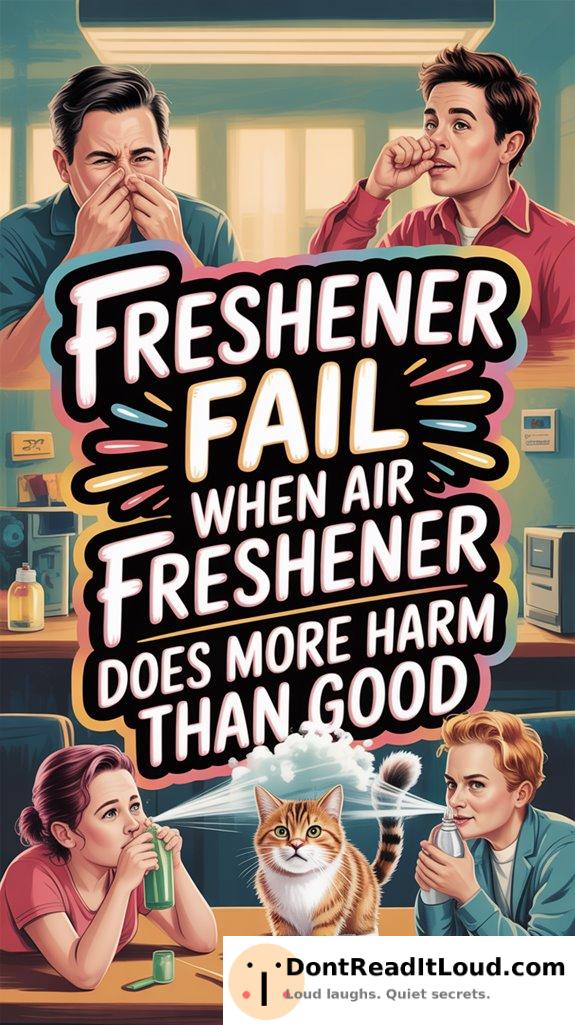
Air fresheners may create a pleasant scent, but many contain hidden chemicals that negatively affect your health and indoor air quality. Instead of removing odors, they simply cover them up, which can result in poor ventilation and lingering stale air. People with sensitivities might experience allergies or other health problems from these fragrances. Using air fresheners over time can seriously impact your respiratory health. Explore alternative methods to keep your home’s air genuinely fresh and healthy.
The Hidden Chemicals Lurking in Air Fresheners
Have you ever wondered what’s actually inside your air freshener? You might picture it simply turning bad smells into a field of flowers, but there’s more inside that canister.
Marketers often use a trick called fragrance masking, hiding odors beneath a mix of complex scents. Scent layering is another technique, adding multiple aromas to disguise unpleasant smells.
But be cautious—these pleasant fragrances may contain a mix of chemicals that smell nice, but aren’t necessarily good for your lungs.
The Impact on Indoor Air Quality
While air fresheners might seem like a quick fix for unwanted odors, they can actually compromise the quality of the air in your home. You may think you’re solving the problem, but spraying only masks unpleasant smells rather than removing them. It’s like covering a leaky pipe with a band-aid—sooner or later, the issue will return.
Picture this: poor ventilation fills your space with stale air, and the air freshener just adds another layer to it. Instead of making things better, you create a mix of fragrances and lingering odors.
Before you fill your living room with artificial scents, try opening a window for some real fresh air.
Allergies and Sensitivities: A Growing Concern
Why do some people start sneezing or get headaches around air fresheners? You can blame fragrance allergies and scent sensitivities for that trouble. For some, even a hint of perfume is enough to trigger a reaction. Their noses act like vigilant guards, on high alert for any strong scent.
Your body might interpret that floral aroma as an invasion rather than a pleasant breeze. Suddenly, your nose is saying, “Not today!” Instead of enjoying fresh air, you’re left sneezing or nursing a headache.
Consider this before you reach for that lavender air freshener—your nose mightn’t appreciate the extra fragrance.
Long-Term Health Risks Associated With Air Fresheners
Beyond immediate reactions like sneezing or headaches, air fresheners pose serious long-term health risks. Envision a fragrance overload so powerful it makes your nostrils perform a double backflip!
The chemicals in these little scent bombs could lead to more than just nasal gymnastics. These substances may irritate your lungs and contribute to lasting respiratory problems.
Prolonged exposure might also disrupt your hormones over time.
In short, while your house may smell like a field of lavender, you could be risking long-term lung health. So, the next time you’re tempted to unleash that floral fury, maybe just open a window instead. Your future self will thank you!
Conclusion
You’ve learned that air fresheners may seem convenient, but they can release harmful chemicals indoors. These substances can lower air quality, trigger allergies, and cause sensitivities. Long-term exposure increases health risks. Next time, consider skipping the air freshener. Choose natural options and boost ventilation to keep your home fresh and healthy.



